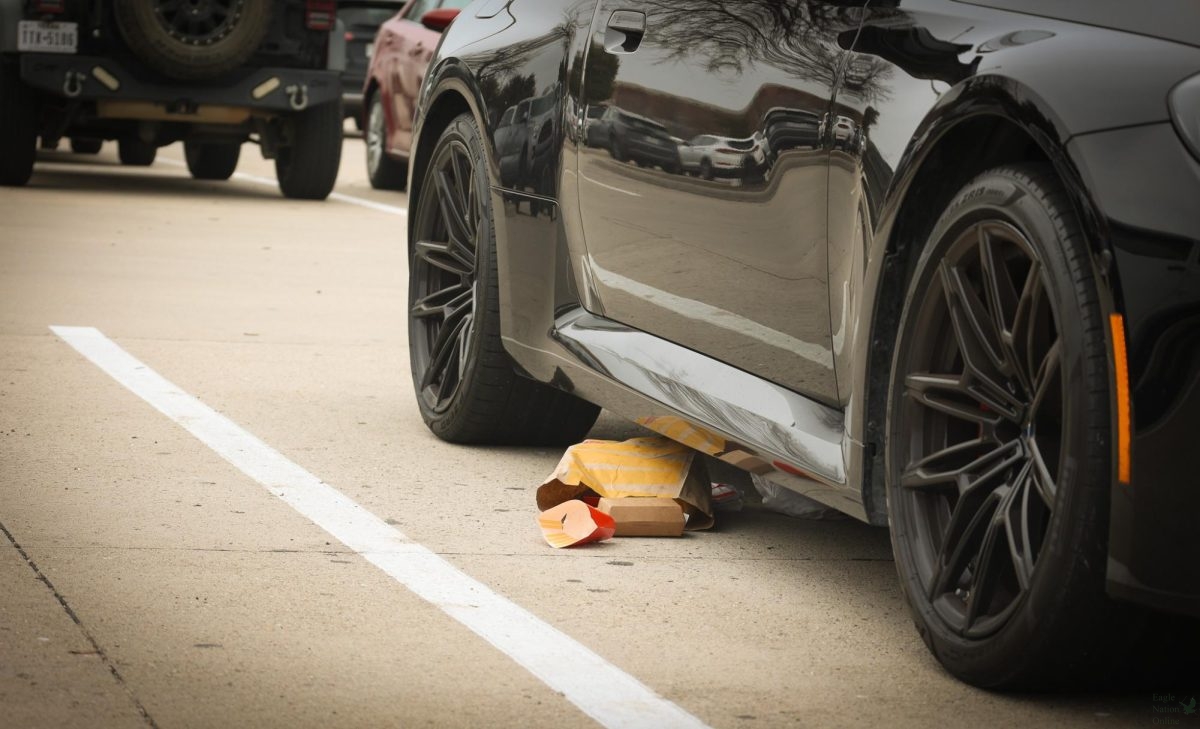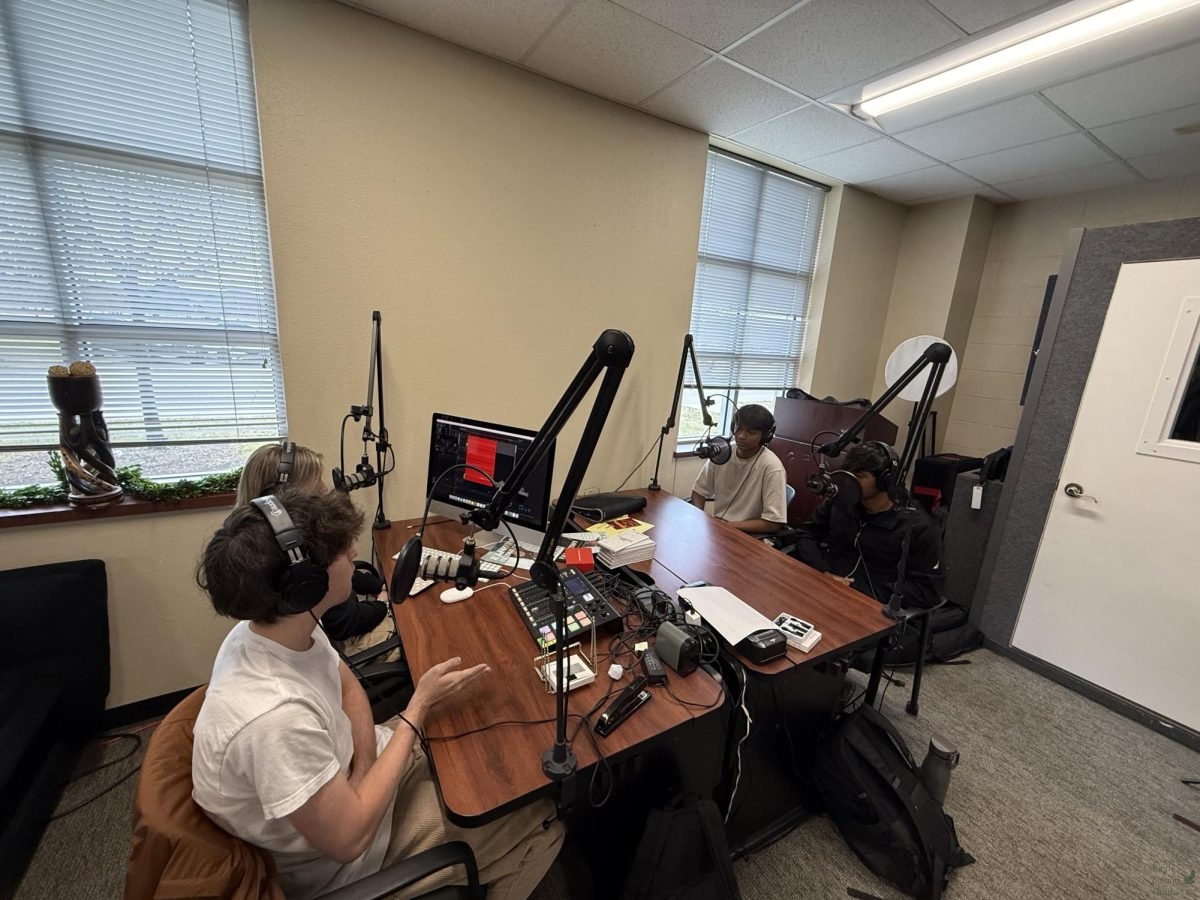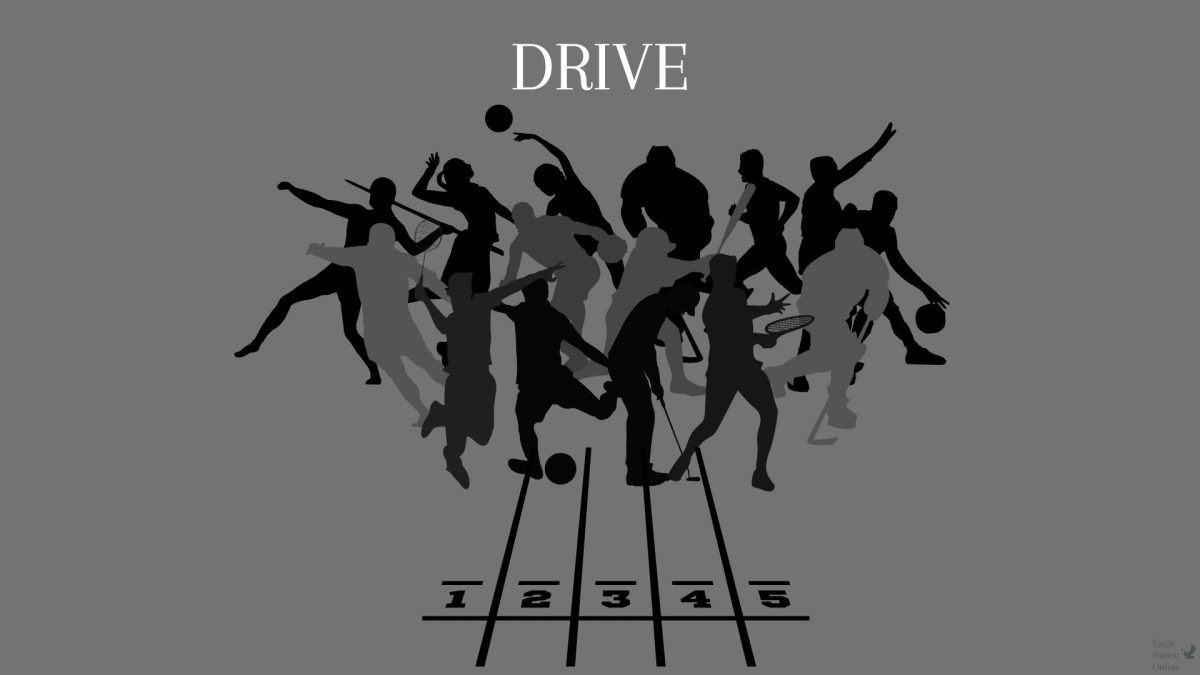Billions of pieces of trash litter American highways, communities and schools. Public schools themselves produce over 14,000 tons of trash every year. This past year, the Prosper High School community has seen increased littering within school grounds, especially parking lots. Students can be fined up to $500 if caught littering, yet this hasn’t stopped students from polluting the parking lots — district police officer Sgt. Chris Reeves has called for measures for proper trash disposal, effective immediately. There must be stricter enforcement against students to fix this issue.

Clean school grounds are essential to maintaining a sanitary environment for natural habitats. In addition, the pollution from students affects the surrounding ecosystems, with plastic becoming a part of the water system and disrupting the homes of wildlife because of its anti-degradable properties. Organizations at PHS, such as the ACE environmental club, have picked up over 40 bags of trash in one day, showing the large-scale impact of littering. For many current employees, such as the janitors, picking up so much additional trash can be demoralizing. These individuals are already working long hours, arriving at school before anyone else and leaving much later. It is not their job to be wheeling in pounds of additional trash because students cannot find the nearest trash can.
Proper trash disposal has also been shown to better engage students in daily learning. Students are more likely to attend a school where they don’t have to worry about sanitary concerns or walking through a landfill to get to their next class. The image of the campus also reflects the school’s pride and creates a reputation in the surrounding community. In addition, a significant portion of the school’s budget has to go towards maintenance, taking away from spending on school clubs and sports, where the funding should be allocated. Harsher punishments against littering will motivate students to take responsibility for keeping school grounds clean.
Some argue that the fine for littering is already too extreme. However, extreme actions call for extreme measures. The fine is not enough of a punishment, as students continue to litter. A closer watch on the trash disposal will dramatically reduce this issue.
Staff and administrators can help reduce the amount of overall litter by making trash cans and recycling bins more accessible in the parking lots and throughout the campus. Some parking and driving privileges could also be revoked if caught littering a certain amount of times. It is essential that the PHS community start raising awareness to advocate for this cause.
The school must create stricter policies for students to reduce the amount of littering.

















